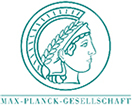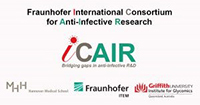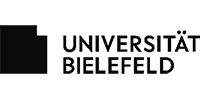Collaborations
Working together delivers research excellence. Our collaborations have more than doubled in the past decade. The data shows that the resulting joint publications have 4.25 times higher impact than the global average (Elsevier SciVal and departmental analysis).
Some recent examples:
- Aerospace safety—The University of Southern Queensland’s Centre for Astrophysics and the German Space Agency (DLR) have a long standing partnership which is helping to address the challenge of space debris.
- Alternative energy from microalgae—The University of Queensland’s Centre for Solar Biotechnology is about harnessing the power of the sun using microalgae systems. The Centre has been developed in partnership with the Queensland Government, Siemens (Germany), Bielefeld University (Germany), the Karlsruhe Institute of Technology (Germany), KBR Inc (USA), Neste Oil Corp (Finland), and Cement Australia.
- Antibiotic resistant drugs—The Fraunhofer International Consortium for Anti-Infective Research (iCAIR®) includes Queensland’s Institute for Glycomics Griffith University partnered with Fraunhofer Institute for Toxicology and Experimental Medicine (ITEM) and the Hannover Medical School to develop solutions for antibiotic resistant drugs.
- Biocatalytic nanomachines (BINOM)—The University of Queensland and CSIRO are working with the Technical University of Munich (TUM) to improve the performance of biocatalysts TUM developed to convert bio-based materials into fuels and other value-added chemicals.
- Design—the BMW Group + QUT Design Academy is a global partnership with a mission to strengthen and extend BMW Group and QUT’s collaboration through three bespoke programs: internship, research and special projects. The vision is to create a hub that focuses on fostering design excellence, exploring knowledge horizons and advancing cutting-edge technologies.
- Health alliance—Queensland and Berlin experts in healthcare, medical science and innovation, are working together to advance healthcare systems, research and development, education and training.
- Microbiological water quality—CSIRO Land and Water’s Environmental Contaminant Mitigation and Technologies Program based in Queensland, has formed the German Australian Joint Cooperation for Water Micro-Biology with Technologiezentrum Wasser (TZW, German Water Centre) funded under the BMBF Asia-Pacific Research Area (APRA) programme.
- Painkillers—The University of Queensland’s Centre for Integrated Preclinical Drug Development (CIPDD) has a strong history of collaboration with German pharmaceutical giant Boehringer Ingelheim International in cutting-edge pain research.
- Tuberculosis vaccine strengthening—JCU’s Australian Institute for Tropical Health and Medicine and Max Planck Institute for Infection Biology have a shared interest in overcoming multi-drug resistant strains of TB.
Funding
Australian government grants information system provides details of the many grants available via national government departments and institutions including those supporting international research collaborations.
The Queensland government supports scientific research in Queensland through policies, strategic science and innovation initiatives as well as funding assistance and financial incentives under the Advance Queensland program.
Some of our key German partners
Queensland offers a globally unique proposition
Download or share the Queensland + Germany – Collaborating on Science fact sheet .
Academic Excellence - German Immersion and Extension
The German Immersion and Extension Program (GIEP) is a program of academic excellence at Kenmore State High School and Ferny Grove State High School which offers students an exciting opportunity to develop a very high level of German language proficiency. Brisbane German Language School offers German language courses at St Peters Lutheran College in Indooroopilly.
 German Aerospace Center (DLR)
German Aerospace Center (DLR) Max-Planck-Gesellschaft
Max-Planck-Gesellschaft TZW:DVGW - Technologiezentrum Wasser (German Water Centre)
TZW:DVGW - Technologiezentrum Wasser (German Water Centre) Fraunhofer
Fraunhofer German-Australian iCAIR project
German-Australian iCAIR project Karlsruhe Institute of Technology
Karlsruhe Institute of Technology Technical University of Munich
Technical University of Munich Bielefeld University
Bielefeld University